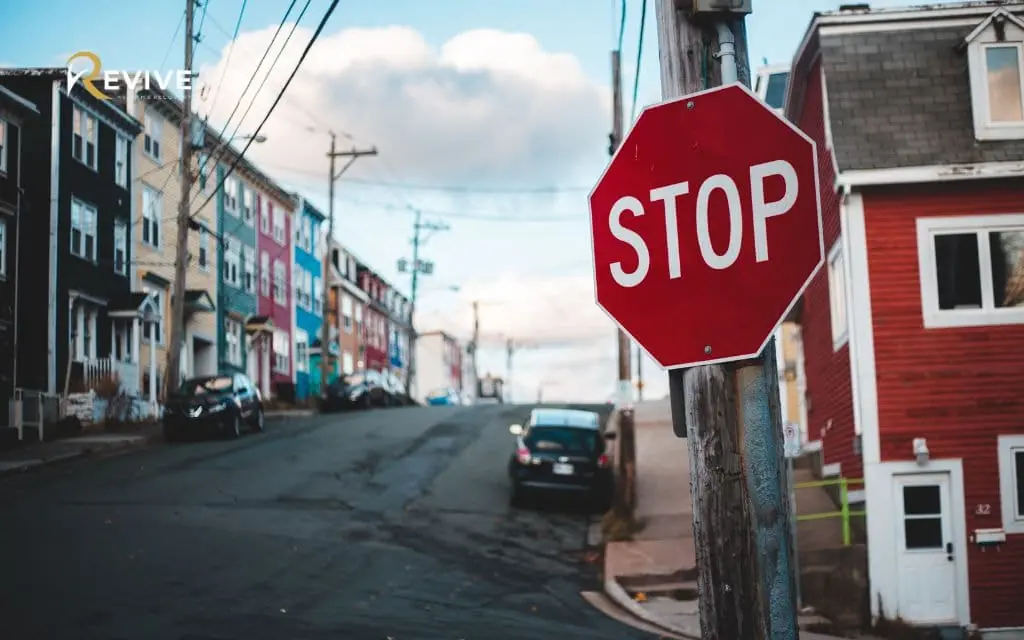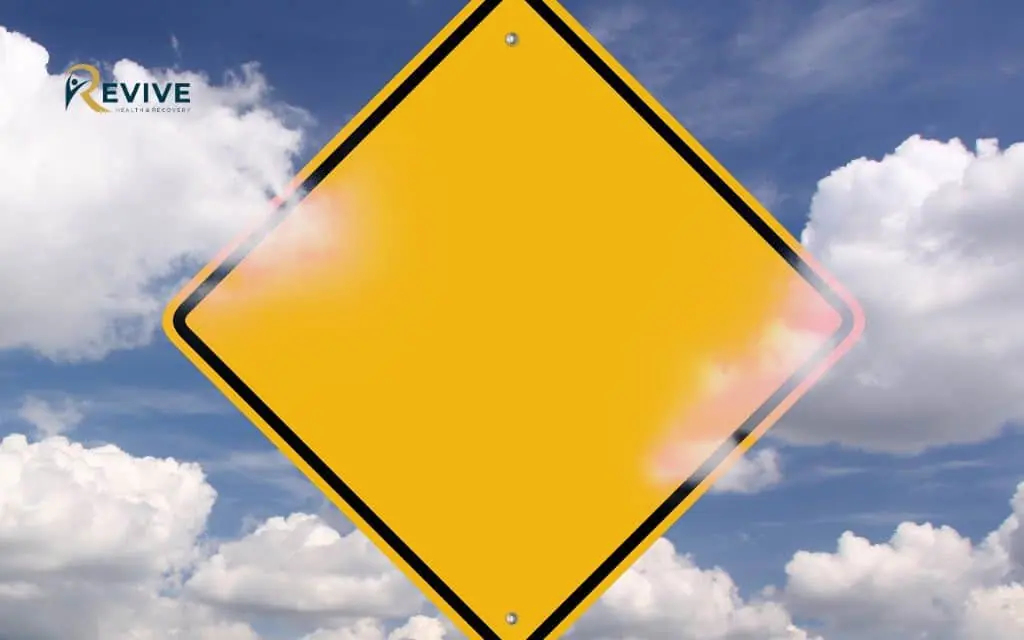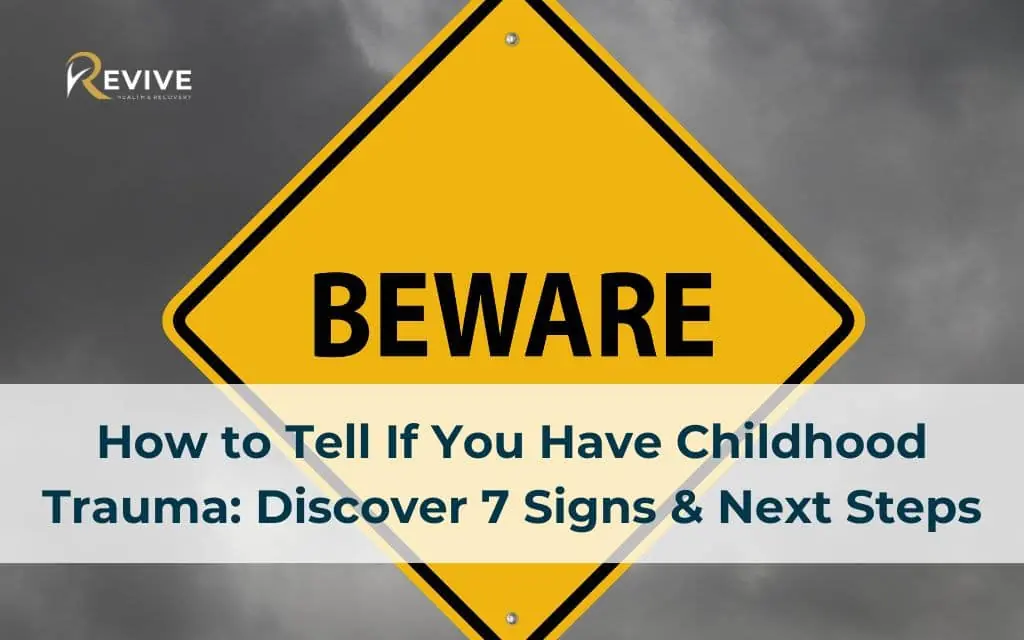Do you find yourself reacting strongly to certain situations without understanding why? Or perhaps you struggle with persistent anxiety that doesn’t seem connected to your current circumstances? In Trauma Recovery Insights, these experiences might be linked to childhood trauma that you haven’t fully recognized or processed.
Nearly two-thirds of adults have experienced at least one adverse childhood event, according to the landmark ACEs (Adverse Childhood Experiences) study. What’s more surprising is how many people don’t realize these past experiences continue to affect their adult lives. If you’re questioning whether childhood experiences might be impacting your present, you’re not alone—and recognizing these patterns is the first step toward healing.
In this article, we’ll explore ‘How to Tell If You Have Childhood Trauma?’ ,assess its impact on your life, understand its effects, and discover healing options available in Denver, Colorado.
What Is Childhood Trauma? A Clear Starting Point
Childhood trauma encompasses distressing experiences that occur before adulthood and overwhelm a child’s ability to cope. These experiences include:
- Physical, emotional, or sexual abuse
- Neglect or abandonment
- Witnessing domestic violence
- Having a household member with mental illness or substance abuse issues
- Parental separation or divorce
- Incarceration of a family member
- Community violence or natural disasters
In Colorado, approximately 55% of residents report experiencing at least one adverse childhood experience, slightly higher than the national average. Understanding this prevalence helps normalize these experiences while highlighting the importance of addressing them.

Recognizing childhood trauma matters because unresolved trauma doesn’t simply disappear—it often manifests in various aspects of adult life, affecting relationships, career choices, health decisions, and overall well-being.
Key Signs of Childhood Trauma in Adults
Identifying signs of unresolved childhood trauma requires self-awareness and honesty. Here are common symptoms of childhood trauma in adults:
- Relationship Difficulties: Do you struggle to trust others or find yourself repeating unhealthy relationship patterns? Childhood trauma often disrupts our ability to form secure attachments.
- Heightened Stress Response: Experiencing disproportionate reactions to minor stressors may indicate your nervous system is still operating from past trauma.
- Negative Self-Perception: Persistent feelings of shame, worthlessness, or believing you’re fundamentally flawed can stem from childhood experiences where you internalized negative messages.
- Emotional Regulation Challenges: Difficulty identifying, expressing, or managing emotions may indicate childhood trauma, especially if emotions were punished or dismissed in your early years.
- Physical Symptoms: Chronic pain, digestive issues, or frequent illness without clear medical cause can be physical manifestations of unresolved trauma.
- Control Issues: Either needing excessive control or avoiding responsibility entirely can be protective mechanisms developed in childhood.
- Unexplained Anxiety or Depression: Persistent mood issues without clear current triggers may connect to childhood experiences.
Understanding these common symptoms of childhood trauma in adults can help you recognize these patterns more clearly.
Keep in mind that not everyone experiences the same signs of childhood trauma—your journey and symptoms are unique to you. In addition to the commonly recognized symptoms, be sure to explore the less obvious & hidden signs of childhood trauma also that may manifest in specific ways, reflecting your personal experiences.
Self-Assessment: Could You Have Childhood Trauma?
While only a trained professional can provide a formal diagnosis, this childhood trauma self-assessment can help you reflect on potential indicators:
- Do you feel unsafe or on edge even in objectively calm situations?
- Do you have difficulty trusting others or maintaining close relationships?
- Are you hypersensitive to criticism or rejection?
- Do you struggle with persistent negative beliefs about yourself?
- Do certain sensations, places, or interactions trigger unexplained emotional responses?
- Do you use substances, food, work, or other behaviors to numb uncomfortable feelings?
- Do you have persistent health issues without clear medical explanation?
If you answered yes to several questions, childhood experiences might be influencing your current life. Consider journaling about these reflections or sharing them with someone you trust.
Exploring how to remember childhood trauma can provide clarity on these influences.
This self-assessment isn’t a diagnosis—it’s a step toward greater self-understanding and determining whether professional support might benefit you in recognizing childhood trauma effects.

How Childhood Trauma Shapes Your Life
Understanding the effects of childhood trauma on relationships and other aspects of life can provide clarity and validate your experiences.
Emotional and Relational Impacts
Trauma can fundamentally alter how we relate to ourselves and others. You might notice:
- Difficulty establishing trust
- Fear of abandonment or rejection
- Tendency to either avoid conflict entirely or engage in frequent arguments
- Challenges with intimacy or vulnerability
- People-pleasing behaviors or difficulty setting boundaries
- Codependent relationship patterns
Biological Effects
Trauma doesn’t just affect our psychology—it changes our biology. Research shows childhood trauma can alter how your genes express stress responses through epigenetic changes. This means:
- Your nervous system might remain in a heightened state of alert
- Stress hormones like cortisol may be consistently elevated
- Brain structures responsible for threat detection can become overactive
- Your body’s inflammatory responses may increase
Health Risks
The link between childhood trauma and health outcomes is well-established. Comprehensive research demonstrates that ACEs are associated with increased risk for:
- Anxiety disorders and depression
- Substance use disorders
- Autoimmune conditions
- Heart disease
- Chronic fatigue
- Sleep disorders
These connections highlight why addressing childhood trauma isn’t just about emotional healing—it’s also crucial for physical health. Additionally, learning how to deal with childhood trauma can provide practical steps to move forward.
Healing in Denver: Treatment Options for Childhood Trauma
Denver offers numerous resources for trauma recovery, and understanding how therapy helps provides motivation to seek support.
Discover effective strategies for healing childhood trauma to start your journey.
Why Therapy Works for Trauma
Trauma therapy addresses subconscious patterns and physiological responses that self-help alone often can’t resolve. Professional support provides:
- Safety to explore difficult emotions and memories
- Expertise in trauma-specific healing approaches
- Guidance in rewiring trauma responses
- Tools to develop new coping skills
Evidence-Based Trauma Therapies Available in Denver
Several therapeutic approaches show effectiveness for resolving symptoms of unresolved childhood trauma:
EMDR (Eye Movement Desensitization and Reprocessing): This therapy helps the brain process traumatic memories through bilateral stimulation, reducing their emotional charge. Learn more about EMDR for childhood trauma.
Cognitive-Behavioral Therapy (CBT): CBT helps identify and change unhelpful thought patterns stemming from trauma experiences.
Somatic Therapies: These approaches address how trauma is stored in the body, helping release physical tension and restore regulation.
Internal Family Systems (IFS): This model helps identify and heal different “parts” of ourselves that developed to protect us during traumatic experiences. Research shows promising results for trauma treatment using this approach.
Revive Health Recovery in Denver offers comprehensive trauma treatment including these evidence-based approaches. Our trauma-informed specialists understand the complexity of childhood trauma and tailor treatment to your specific needs and experiences.
Next Steps: Finding a Trauma Therapist in Denver
Taking the step to find professional support for childhood trauma requires courage. Here’s how to connect with the right support in Denver:
- Research trauma specialists: Look for therapists who specifically mention trauma expertise and trauma-informed approaches.
- Verify credentials: Ensure potential therapists have appropriate licensing and specialized training in trauma treatment.
- Consider your preferences: Think about whether you’d feel more comfortable with a therapist of a particular gender, age, or background.
- Ask about approach: Different therapies work for different people—ask potential therapists about their methods for addressing childhood trauma.
- Trust your instincts: The therapeutic relationship matters significantly in trauma work—if something doesn’t feel right, it’s okay to try someone else.

Revive Health Recovery offers personalized trauma therapy in Denver with specialists trained in multiple evidence-based approaches. Our team understands the local community and provides culturally sensitive care tailored to your unique needs.
Ready to explore healing options? Call us at (303) 268-4655 to speak with one of our trauma specialists about how we can support your journey.
FAQs about How to Tell If You Have Childhood Trauma
What are the top signs of childhood trauma in adults?
The most common signs include relationship difficulties, anxiety, depression, hypervigilance, emotional regulation problems, negative self-perception, and unexplained physical symptoms. At Revive Health Recovery in Denver, we help clients identify these signs and develop personalized healing strategies.
How does childhood trauma affect my relationships?
Childhood trauma can create patterns of insecure attachment, trust issues, fear of abandonment, difficulty with boundaries, and challenges with intimacy or vulnerability. Revive Health Recovery offers relationship-focused trauma therapy to address these patterns and build healthier connections.
Can I heal without therapy?
While self-help resources and supportive relationships can be valuable, professional guidance is often necessary to fully resolve childhood trauma. Revive Health Recovery in Denver provides the expert support needed to address deep-seated patterns that self-help alone may not reach.
What’s the best therapy for childhood trauma?
The most effective approach depends on your specific experiences and needs. Evidence-based options include EMDR, CBT, somatic therapies, and Internal Family Systems. Revive Health Recovery offers comprehensive assessment to determine which approach will best support your healing journey.
How do I find a Denver therapist for trauma?
Start by researching trauma-informed practitioners, verifying credentials, and scheduling consultations to find the right fit. Revive Health Recovery is one of Denver’s leading providers of trauma therapy with specialists dedicated to supporting your healing process.
Your Path to Healing Starts Here
Recognizing the signs of childhood trauma takes courage, and acknowledging its impact on your life is a significant step toward healing. Remember that the presence of these signs doesn’t define your future – it simply helps explain your past and present experiences.
Healing is possible at any age and stage of life. The resilience that helped you survive difficult childhood experiences can be channeled into recovery and growth. You don’t have to face this journey alone – qualified support can make the process more manageable and effective.
Whether you’re just beginning to recognize childhood trauma’s impact or have been aware for some time, taking one step today to healing past wounds moves you forward. That step might be completing a self-assessment, journaling about your experiences, or reaching out to a professional.
Contact Revive Health Recovery at (303) 268-4655 to learn more about our trauma therapy services in Denver. Our compassionate team is ready to support your unique healing journey with evidence-based, personalized care.



